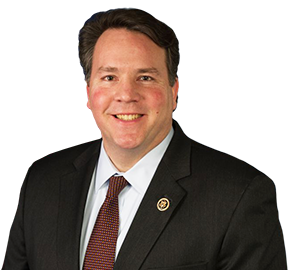WASHINGTON, D.C. — Whatever further chapters history writes about former president Donald John Trump, one part is already in the book: He’s the only president to be impeached twice.
Trump, not convicted after his first impeachment, was impeached a second time Jan. 13, with the article alleging he had incited an insurrection that resulted in the Jan. 6 storming of the U.S. Capitol.
Part of this chapter will involve the vote for impeachment. Democrats control the House of Representatives and needed only a majority to send the impeachment article to the Senate for a trial. All Democrats voted to impeach, while 201 Republicans, including West Virginia representatives David McKinley, Carol Miller and Alex Mooney, voted not to impeach.
Ten other Republicans, with seven of them from states carried by President Joe Biden, joined Democrats in voting for impeachment. That was the most members of a president’s party to vote to impeach.
What’s next is complicated, since Trump is the first to be impeached while president who is scheduled to face trial in the Senate after he has left office. The Senate majority leader will guide the pace of any events, and the matter could end up before the U.S. Supreme Court on the issue of Trump no longer being in office.
That Mooney, Miller and McKinley voted not to impeach also comes with the backdrop that West Virginia was among five states carried by Trump by more than 30%. The others were Wyoming, Idaho, Oklahoma and North Dakota.
McKinley, Mooney and Miller released statements on their reasoning for voting not to impeach.
The mob that stormed the U.S. Capitol disrupted the vital step in the electoral process: The certification of Biden’s win, McKinley noted.
“The mob damaged and stole property, assaulted members of law enforcement and caused five deaths, including one Capitol police officer. This attack was both disgusting and tragic,” McKinley said.
“President Trump bears responsibility for this. There is enough blame to go around. The statements of other elected officials, the 24-7 news media that seek out controversy, and social media platforms where going viral is more important than the truth have all contributed to the decay of civil discourse. Words and actions mean something, and reckless rhetoric has real-world consequences,” McKinley said.
“Like anyone else, I am angry about what happened. But history is replete with poor judgments made in anger leading to knee-jerk reactions,” McKinley said.
“Any reading of the Constitution and the Federalist Papers shows that impeachment was intended to be a seldom-used tool done through a deliberative process, not a snap judgment of a majority,” McKinley said, adding that he stood against an impeachment vote without holding hearings or assessing evidence.
“Ultimately, the people responsible for this heinous act — whether they committed violence or incited the crowds — will be held accountable. But right now, it is imperative that we turn down the temperature and restore calm to this country,” McKinley said.
“With the benefit of all the facts, it may become evident that the president did indeed commit an impeachable offense. However, with a truncated, rushed process, I can’t fairly make that judgment and will vote against the Article of Impeachment today.”
Miller began by pointing out that the “freedom to peacefully protest has been the cornerstone of democracy. It stands at the core of American values. The Jan. 6 criminal acts carried out against the Capitol and the United States Congress have absolutely no place in our society.”
“Violence of any kind does not belong in the political discourse of the United States of America. Anyone who carried out the Jan. 6 attack must be held accountable under the law, and anyone who feels compelled to violence going forward must take time to pause and abandon their plans,” Miller said.
“America is in desperate need of healing and unity, not further division,” she said, noting the vote came with Trump’s term set to expire in a week.
“That is why I voted today not to impeach President Trump. Many of my colleagues will join me in opposing impeachment, and many of my colleagues will support impeachment. While we may disagree on this issue and others, every single member of the House of Representatives wants the same thing for our constituents and our nation — a safe, free, and prosperous country.
“We might disagree on how we achieve those goals, but our shared values are stronger than our disagreements. Every member, regardless of their vote today or in the future, deserves the respect due to any individual to serve the public to the best of their ability,” Miller said.
Mooney said the U.S. Constitution “stipulates that a president can be impeached for ‘Treason, Bribery, or other high Crimes and Misdemeanors.’ While many people may have disagreed with the content of President Trump’s speech on Jan. 6, this political speech was protected under the First Amendment.
“Furthermore, President Trump specifically called upon the attendees to ‘peacefully and patriotically make your voices heard.’ The individuals who chose to attack the U.S. Capitol are responsible for their own actions and should be punished to the fullest extent of the law.”
“Today’s vote to impeach the President lacks constitutional merit and only adds to further anger and division in America. President Trump has seven days left in office and he has repeatedly, including today, called for a peaceful transition of power. Now is the time to put partisan politics aside and work together for the best interest of America,” Mooney said.

